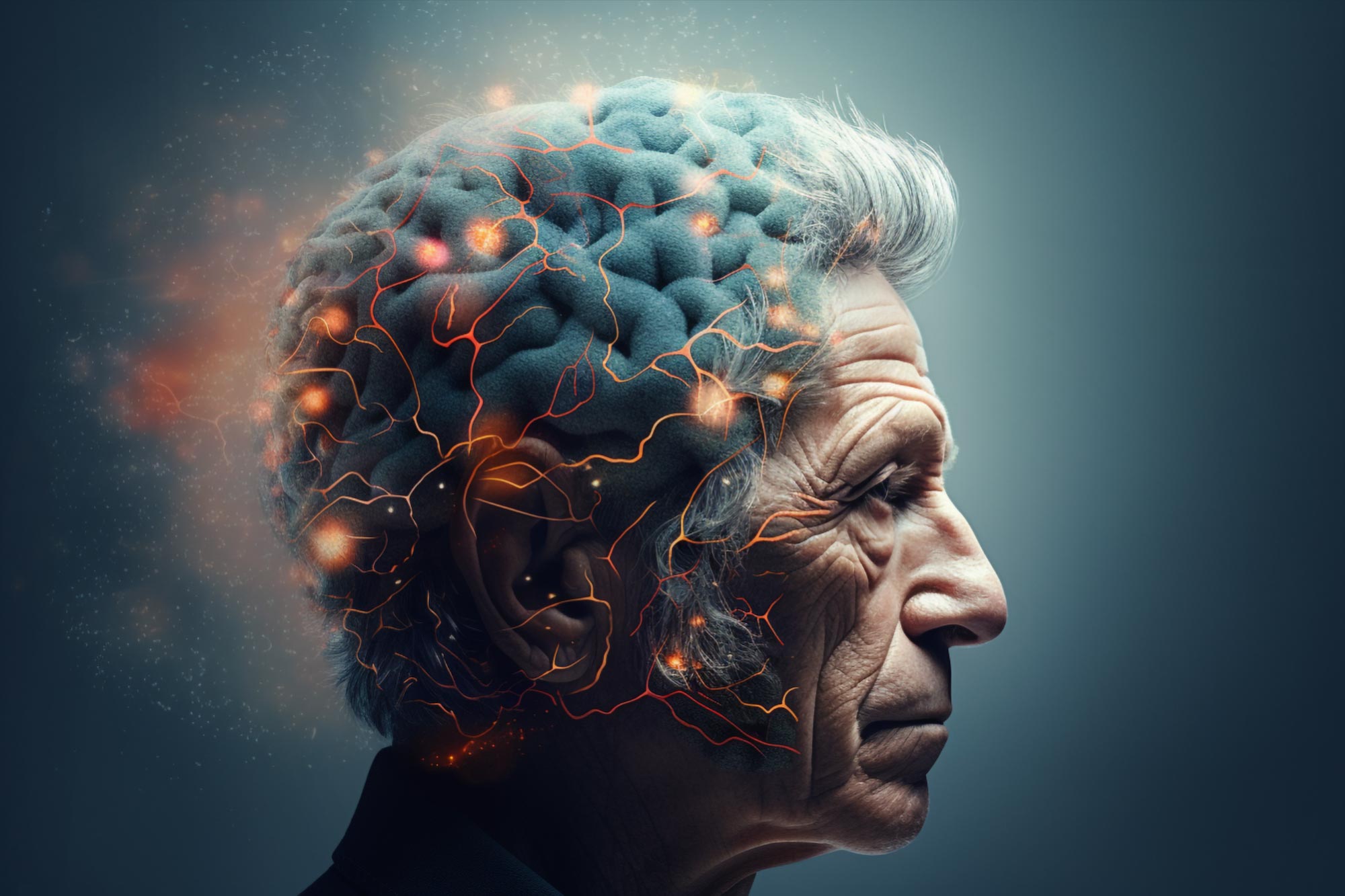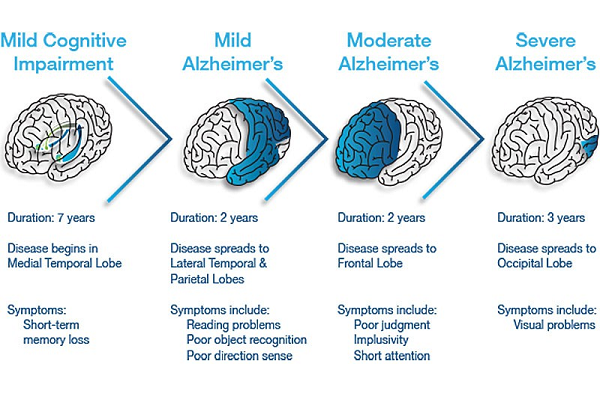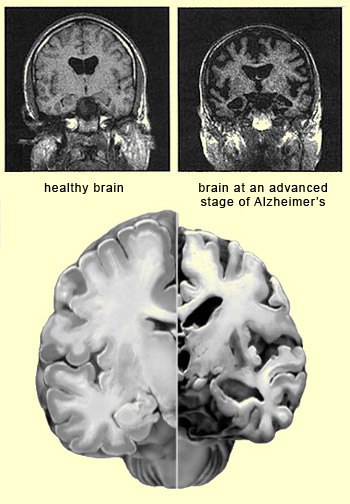Alzheimer's Disease: Signs, Treatments, and Hope for the Future
Alzheimer's disease is one of the most devastating and complex neurodegenerative conditions, affecting millions of individuals worldwide. This guide aims to unravel its mysteries by providing a clear, empathetic overview, tailored for those curious about the disease and those directly impacted, including family members, caregivers, and medical students.
Image: Alzheimer's Patient Illustration
What is Alzheimer’s Disease? Definition, Causes, and Risk Factors
Alzheimer's disease (AD) is a progressive brain disorder that leads to memory loss, cognitive decline, and ultimately, an inability to carry out simple daily tasks. It is the most common cause of dementia, accounting for 60-80% of dementia cases. Alzheimer's affects neurons in the brain, leading to the accumulation of two hallmark proteins—beta-amyloid plaques and tau tangles—that disrupt communication between brain cells, eventually causing cell death.
Key Causes and Risk Factors:
- Age: The most significant risk factor, with the majority of cases occurring in individuals over 65.
- Genetics: A strong familial link exists, particularly with mutations in genes like APOE-ε4.
- Lifestyle and Environment: Cardiovascular health, diet, exercise, and exposure to toxins can play a role.
- Comorbidities: Conditions like diabetes, hypertension, and obesity increase the risk.
Alzheimer's is not a normal part of aging, but its risk increases with age, making it critical to recognize symptoms early.
Image:
Healthy Brain vs. Alzheimer’s Diseased Brain. Compared to a healthy brain, the Alzheimer’s drain can be noted with shrinkage in size, less moisture, and enlarged ventricles.
Early Signs, Symptoms, and Diagnosis
Early Signs and Symptoms:
The early stages of Alzheimer's may be mistaken for normal aging, but there are key indicators that signal more than just age-related forgetfulness:
- Memory loss that disrupts daily life (e.g., forgetting important dates or repeatedly asking the same questions)
- Difficulty planning or solving problems
- Confusion with time or place (e.g., getting lost in familiar areas)
- Struggling with words or conversations
- Misplacing objects and being unable to retrace steps
- Withdrawal from social activities or work
- Changes in mood and personality, including increased anxiety, confusion, or suspicion
Diagnostic Process:
Diagnosing Alzheimer’s involves a combination of clinical assessments, medical history reviews, and cognitive tests. Common diagnostic tools include:
- Cognitive screening tests (e.g., the Mini-Mental State Examination)
- Neuroimaging (MRI, CT scans) to detect brain changes
- Biomarker tests, including cerebrospinal fluid (CSF) analysis and blood tests for beta-amyloid and tau proteins
- Genetic testing for high-risk individuals (such as APOE-ε4 gene carriers)
Early diagnosis is crucial for managing symptoms and planning long-term care.
Stages of Alzheimer’s: Mild, Moderate, and Severe
Alzheimer’s typically progresses in three stages, with symptoms worsening over time.
- Mild (Early Stage): Individuals experience minor memory lapses, difficulty with concentration, and slight changes in personality or reasoning.
- Moderate (Middle Stage): Memory and cognitive function deteriorate significantly. Individuals struggle with routine tasks, need assistance with personal care, and may display more pronounced behavioral changes like agitation and confusion.
- Severe (Late Stage): Individuals lose the ability to respond to their environment, communicate, and eventually, control movement. Full-time care becomes essential, as they become bedridden and vulnerable to infections.
Image: Stages of Alzheimer's Disease
Current Treatments for Alzheimer’s Disease
While there is no cure for Alzheimer’s, treatments aim to slow its progression and improve the quality of life for patients.
Medications:
- Cholinesterase inhibitors (e.g., donepezil, rivastigmine) improve memory and cognition by increasing neurotransmitters in the brain.
- Memantine: This drug regulates glutamate, a neurotransmitter linked to learning and memory, and is used for moderate to severe stages.
- Combination therapy: Combining memantine and cholinesterase inhibitors for better symptom management.
Lifestyle Modifications and Therapies:
- Cognitive behavioral therapy (CBT) and memory training can help slow cognitive decline.
- Exercise and diet: Regular physical activity and a Mediterranean or DASH diet have been associated with improved brain health.
- Social engagement: Remaining socially active and engaged in mentally stimulating activities can improve quality of life.
Recent Advances in Research and Treatment
In recent years, significant strides have been made toward more effective treatments:
Immunotherapy (e.g., Aducanumab)
Aducanumab, approved by the FDA in 2021, is the first therapy to target and reduce beta-amyloid plaques in the brain. Though controversial due to mixed clinical trial results, it marks a new chapter in Alzheimer’s treatment by directly addressing the underlying biology of the disease.
Gene Therapy
Researchers are exploring gene-editing technologies like CRISPR to target genetic mutations like APOE-ε4, which greatly increases the risk of Alzheimer's. Modifying gene expression may prevent or delay the onset of the disease.
Stem Cell Therapy
Stem cell research offers hope by potentially regenerating damaged brain cells. Early-stage studies have shown promising results in animal models, but clinical applications are still under investigation.
Personalized Medicine
Future treatments may be tailored based on individual genetic profiles and biomarkers, offering more precise and effective care plans.
Advances in Neuroimaging and Biomarkers
Cutting-edge imaging techniques, like PET scans and blood tests for tau and beta-amyloid, are enhancing early detection and tracking of disease progression. Biomarker research is also paving the way for more targeted and earlier interventions.
Image: Cortical Atrophy in Alzheimer's
Caregiving Strategies and Support Systems
Caring for someone with Alzheimer's is a long, challenging journey, but several strategies can help:
- Establish routines: Predictability can reduce anxiety for individuals with Alzheimer’s.
- Maintain a calm environment: Reducing noise and distractions helps minimize confusion.
- Encourage independence: Let patients engage in tasks they can still perform safely, fostering a sense of accomplishment.
- Use memory aids: Notes, reminders, and visual cues help support cognitive function.
- Seek professional help: Caregivers should not hesitate to reach out to Alzheimer’s specialists, support groups, or respite care services to avoid burnout.
Social Awareness and Reducing Stigma
Despite its prevalence, Alzheimer’s is often misunderstood, leading to stigma that affects both patients and caregivers. Raising awareness through education, advocacy, and sharing real-life stories helps normalize the disease and encourage earlier diagnoses. Governments, healthcare institutions, and communities must work together to promote dementia-friendly environments.
Image: Alzheimer awareness Ribbon
Future Directions and Potential Breakthroughs
The future of Alzheimer’s treatment holds immense promise. With advances in artificial intelligence, neuroimaging, and genetic research, there is optimism for earlier detection and more effective interventions. Cutting-edge therapies, such as combination treatments, anti-tau therapies, and nanotechnology-based drug delivery, could one day provide breakthroughs that drastically improve patient outcomes.
Conclusion and Call to Action
Alzheimer's disease remains a formidable challenge, but continued research, awareness, and compassion can make a meaningful difference. Whether you’re a caregiver, medical student, or someone seeking information, it’s vital to stay informed, share experiences, and contribute to the collective understanding of this complex disease.
Resources for Further Learning:
- National Institute on Aging: www.nia.nih.gov
- Alzheimer's Association: www.alz.org
- World Health Organization: www.who.int
We encourage you to explore these resources, ask questions, and advocate for those affected by Alzheimer’s. Together, we can foster a more supportive, informed, and hopeful future.
This article provides a comprehensive overview of Alzheimer's disease, blending medical insight with empathy and practical advice. Whether you're a caregiver, a medical professional, or someone concerned about your loved ones, understanding the disease is the first step towards action.




Comments
Post a Comment